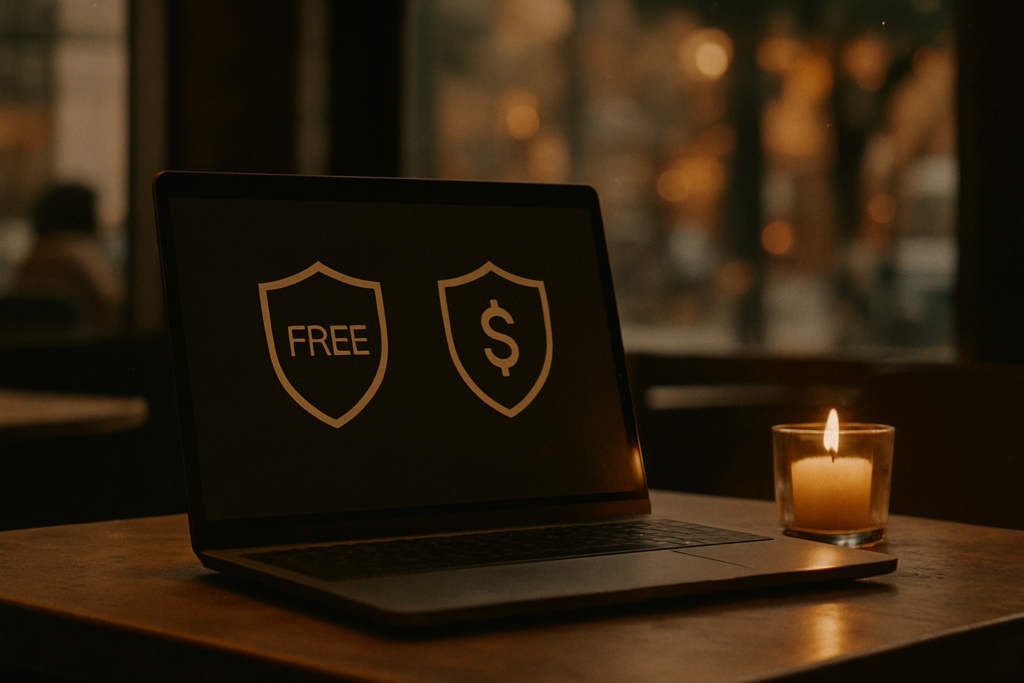In the digital age, VPNs have become a hot topic, but along with their rising popularity, myths and misconceptions have also proliferated. As someone who has delved deep into the world of online privacy and security, I’ve encountered numerous misconceptions about VPNs that need to be debunked. From the belief that VPNs are only for tech-savvy individuals to the misconception that they slow down internet speeds, it’s time to set the record straight.
In this article, I’ll unravel the truth behind some of the most common myths surrounding VPNs. With my expertise in cybersecurity and online privacy, I aim to provide you with clear, concise explanations that will help you separate fact from fiction when it comes to using a VPN. Let’s dive in and dispel these myths once and for all.
The Importance of VPNs
Understanding the significance of VPNs is crucial in today’s digital landscape. VPNs play a vital role in ensuring online security and privacy by encrypting internet traffic and masking IP addresses. These tools are not just for tech experts; they are user-friendly and essential for anyone looking to enhance their online safety.
When it comes to browsing the internet, using a VPN can provide added layers of security, especially when accessing public Wi-Fi networks. By encrypting data, VPNs shield sensitive information from potential cyber threats, protecting users from hackers and other malicious entities. Additionally, VPNs can help bypass geo-restrictions, enabling users to access region-locked content and websites.
Another key aspect of VPN importance is the preservation of anonymity. VPNs allow users to browse the web anonymously, safeguarding their identities and online activities from prying eyes. This anonymity is particularly valuable for individuals concerned about their digital privacy and data tracking by online entities.
Moreover, VPNs contribute to maintaining online freedom and unrestricted access to information. In regions with internet censorship or surveillance, VPNs empower users to bypass these restrictions and explore the internet freely and securely. This unrestricted access fosters a more open and inclusive online environment for individuals worldwide.
The importance of VPNs cannot be overstated in modern online practices. Whether for security, privacy, or unrestricted access, incorporating a VPN into your digital routine is a proactive step towards safeguarding your online presence and data. Embracing VPN technology can significantly enhance your online experience and protect you from various online threats.
Common Myths About VPNs
As an expert in the field, I’ll debunk some common myths surrounding VPNs to provide clarity on their functionality and benefits.
Myth 1: VPNs Slow Down Internet Speed
VPN technology does introduce a slight overhead due to encryption processes, which can lead to a minor decrease in internet speed. However, with advancements in VPN services and infrastructure, this slowdown is often negligible. In many cases, VPNs can even improve connection speeds by bypassing network congestion and ISP throttling.
Myth 2: VPNs Are Only Used for Illegal Activities
Contrary to popular belief, VPNs are versatile tools with legitimate uses. While some may misuse VPNs for illegal activities, their primary purpose is to enhance online security and privacy for everyday internet users, businesses, and organizations. VPNs protect sensitive data from cyber threats and surveillance, making them essential for maintaining digital security.
Myth 3: VPNs Offer Complete Anonymity
While VPNs enhance anonymity by masking IP addresses and encrypting data, they do not provide absolute anonymity. Users should be aware that their online activities may still be traceable through other means, such as cookies, trackers, or timestamps. VPNs serve as a valuable layer of privacy protection but should not be solely relied upon for complete anonymity.
Benefits of Using VPNs

Utilizing a VPN offers several key advantages that can enhance your online experience and security. Here are some of the benefits of incorporating a VPN into your digital routine:
- Enhanced Security: VPNs provide a secure tunnel for your internet traffic, encrypting your data and protecting it from potential hackers and cyber threats. This added layer of security is essential, especially when connecting to public Wi-Fi networks, where your data could be vulnerable to attacks.
- Privacy Protection: By masking your IP address and encrypting your online activities, VPNs help safeguard your privacy and anonymity while browsing the web. This protection is crucial in preventing third parties from tracking your online behavior and collecting personal information.
- Bypass Geo-Restrictions: VPNs allow you to bypass geographical restrictions and access content that may be unavailable in your region. By connecting to servers in different countries, you can unlock restricted websites, streaming services, and other online content.
- Anonymity Maintenance: VPNs enable you to browse the internet anonymously, keeping your online activities private and hidden from prying eyes. This anonymity helps protect your identity and online footprint, ensuring a more secure and private online experience.
- Data Protection: VPNs play a vital role in safeguarding your sensitive data from potential cyber threats and surveillance. Whether you’re conducting online transactions, sharing confidential information, or accessing sensitive data, a VPN can help prevent unauthorized access and data breaches.
- Internet Freedom: With a VPN, you can enjoy unrestricted access to the internet, free from censorship and content limitations. By bypassing online restrictions, you can explore the web freely and access information without constraints imposed by your geographical location.
Incorporating a VPN into your online activities is a proactive step towards enhancing your online security, privacy, and freedom. By leveraging the benefits of VPN technology, you can safeguard your data, protect your privacy, and enjoy a more secure and unrestricted online experience.
Ways to Choose a Reliable VPN Service
In selecting a reliable VPN service, the key factors to consider are:
- Security Features: Look for VPN providers offering strong encryption protocols like AES-256 bit encryption that ensure your data is secure and protected from hackers and other threats.
- No-Logs Policy: Opt for VPN services that have a strict no-logs policy to guarantee that your online activities are not monitored or stored, preserving your privacy.
- Server Locations: Choose a VPN with a wide range of server locations globally to access geo-blocked content and ensure better connectivity speed.
- Connection Speed: Prioritize VPN services that provide fast and stable connections to enjoy seamless browsing, streaming, and gaming experiences.
- Device Compatibility: Ensure the VPN service is compatible with various devices such as smartphones, laptops, and routers for versatile use across your tech ecosystem.
- Customer Support: Select VPN providers with responsive customer support available 24/7 to address any issues or queries promptly and efficiently.
- Pricing Plans: Compare the pricing plans of different VPN services and opt for one that offers a balance between affordability and features without compromising on quality.
By considering these essential aspects when choosing a VPN service, you can ensure a reliable and secure online experience while maximizing the benefits of using a VPN.



